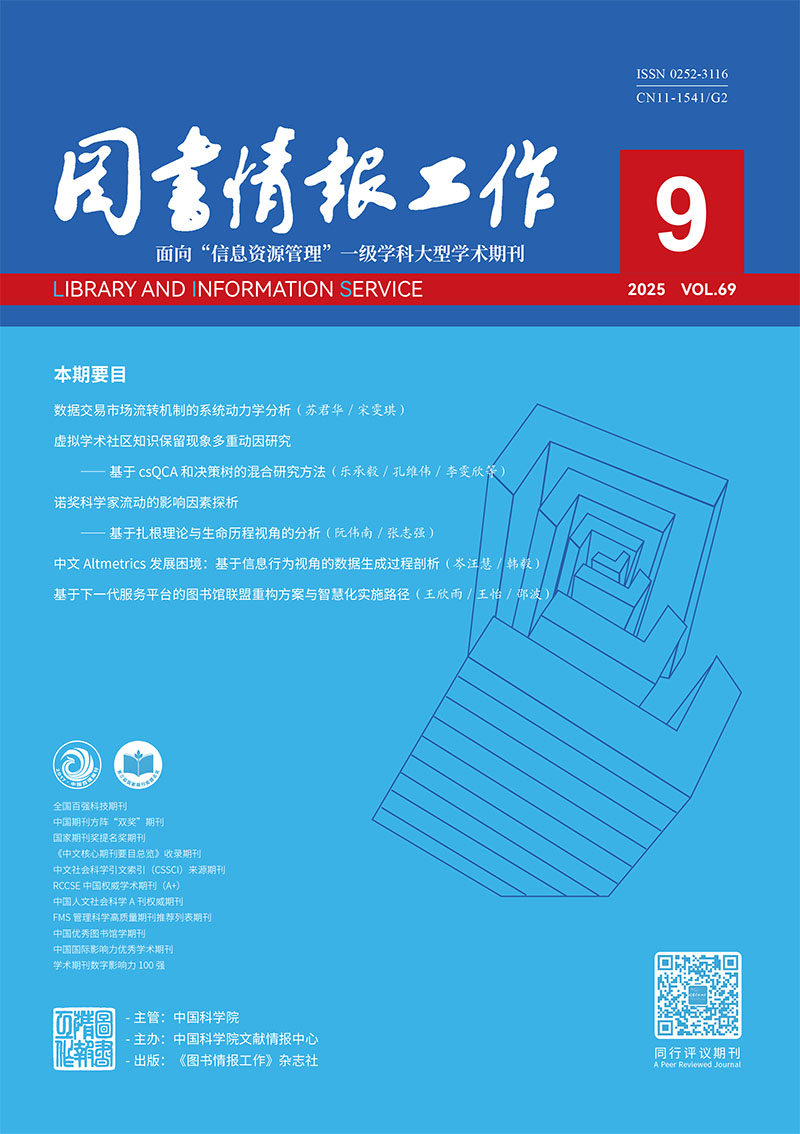RESEARCH PAPERS
Le Chengyi, Kong Weiwei, Li Wenxin, Wang Zixin
[Purpose/Significance] The phenomenon of knowledge withholding among users in virtual academic communities is a critical issue that affects knowledge sharing, innovation, and community development. Drawing upon relevant theories from sociology and psychology, this study delineates the multiple factors influencing knowledge withholding in virtual academic communities from both individual and community environment perspectives. [Method/Process] A two-stage qualitative and quantitative mixed method based on csQCA and decision trees was proposed. User data from virtual academic communities in three different disciplines, science and engineering, management and economics, and medicine, were collected through questionnaire to compare and analyze the multiple configurations of knowledge withholding among users. [Result/Conclusion] The study reveals that: (1) Knowledge withholding among users in virtual academic communities is influenced by multiple factors at both individual and environmental levels, leading to various configuration patterns. Knowledge power remains the primary factor contributing to high knowledge withholding among users in online academic communities. (2) Different combinations of high knowledge withholding are observed in virtual academic communities of different disciplines. In science and engineering communities, knowledge power, psychological ownership of knowledge, and subjective norms of knowledge withholding play major roles, while the influence of knowledge power is more widespread and direct in management communities, with less impact from psychological ownership. In medicine communities, individual factors often interact with community reciprocity and privacy protection at the environmental level. (3) The results of this mixed research method are mutually validating and complementary, providing more comprehensive conclusions. The study enriches and expands theoretical and methodological research on knowledge withholding in virtual communities, and provides insights for addressing knowledge withholding issues and promoting knowledge sharing in virtual communities.
